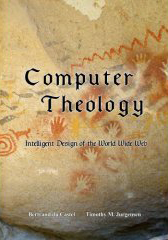PRESS
COMPUTER THEOLOGY |
||||
|
significant time period.
Perhaps, under the correct circumstances, a single or very few acts of altruistic
behavior may be enough to significantly enhance one’s credence for trust.
Likewise, a single betrayal of this acquired trust may be enough to
significantly diminish, perhaps permanently, the credibility so painstakingly
acquired. We most often think about trust in terms of individuals; we develop
trust in a particular person, perhaps simply through reputation if we don’t
know the person. Thus, we imbue a person’s identity with a level of trust relative to some
characteristic. This, of course, presupposes that we have processes through
which identity can be reliably authenticated across time and space; that is, we
must first establish trust in the process through which we determine identity
and then it becomes reasonable that we trust some characteristic associated
with that person’s identity. If, over time, one is recognized as performing in a trustworthy manner,
then one can build a reputation of trust in the eyes of persons not known. Yet
another way to build trust is to aspire to the same set of values in our
actions as does another person or group of persons. This is a way of
establishing a level of trust, although perhaps not trust in a quantitative
sense. Being able to say “she’s a good woman” is a bit different from being
able to say “I’d trust her with my life or the lives of my children.” However,
the former will facilitate the latter. It is this approach to trust that is
embodied in much religious dogma. First, recognize a code of conduct for the
group, a morality, that can be used to guide and to judge the behavior
of individuals. Once a strong correlation is observed, that is, when a person
develops a reputation for doing good, then the trust conveys to situations not
specifically handled by the moral code. We must not, of
course, forget a source of trust that emanates directly from the physical
ecosystem; that is, trust established through force; a form of trust from which
comes action based on an overriding fear of doing otherwise. There is, of
course, but a subtle distinction between fear of the supernatural versus fear
of physical harm in forming the basis of trust. History is replete with social
ecosystems based on either, or both. That said, let us continue our
consideration of a model for social ecosystems by examining how trust, once
established, is conveyed through the ecosystem. We might surmise that from the earliest emergence of human groupings the
ability to convey trust was critical to the success of the group. Conveyance of
trust within nuclear family based groups was likely an artifact of normal
social interaction coupled to physiological processes. To project trust outside
of one’s immediate circle of associates was much more difficult; it still is
today. As interactions among groups became more widespread, that is as groups
became larger and the interaction points became more diverse, the problem of
trust conveyance became more acute. And, what is it about group associations
that make trust so vital? We noted above that a primary requirement for the
group to have competitive advantage over other individuals or other groups is
for the group to have well defined policies established for dealing with
interactions, both intra- and inter-group. If the group is going to count on
adherence by its members in the application of these policies, then the group
must have trust in the policies defined as well as in other individuals in the
application of those policies. During interactions when policies are applied,
it must be possible for individuals involved in the transactions to assess the
trust they place in the other interaction participants. So, in order to
establish our conceptualization of various groups, we need to be able to
understand where the trust is established that is then ascribed to the members
and the policies of the group. If viewed in this way, it is clear that trust
must subsume policy, or put another way, we have to have trust first and then
we’ll be able to accept and apply the policies. Consider the
foundational narratives of the Christian religion. One such narrative deals with
the mission given to Moses to lead the Children of Israel out of bondage in |
||||
|
||||
© Midori Press, LLC, 2008. All rights reserved for all countries. (Inquiries) The contents of ComputerTheology: Intelligent Design of the World Wide Web are presented for the sole purpose of on-line reading to allow the reader to determine whether to purchase the book. Reproduction and other derivative works are expressly forbidden without the written consent of Midori Press. Legal deposit with the US Library of Congress 1-33735636, 2007.
|
ComputerTheology Intelligent Design of the World Wide Web Bertrand du Castel and Timothy M. Jurgensen Midori Press, Austin Texas 1st Edition 2008 (468 pp) ISBN 0-9801821-1-5 |
Book available at Midori Press (regular) |
